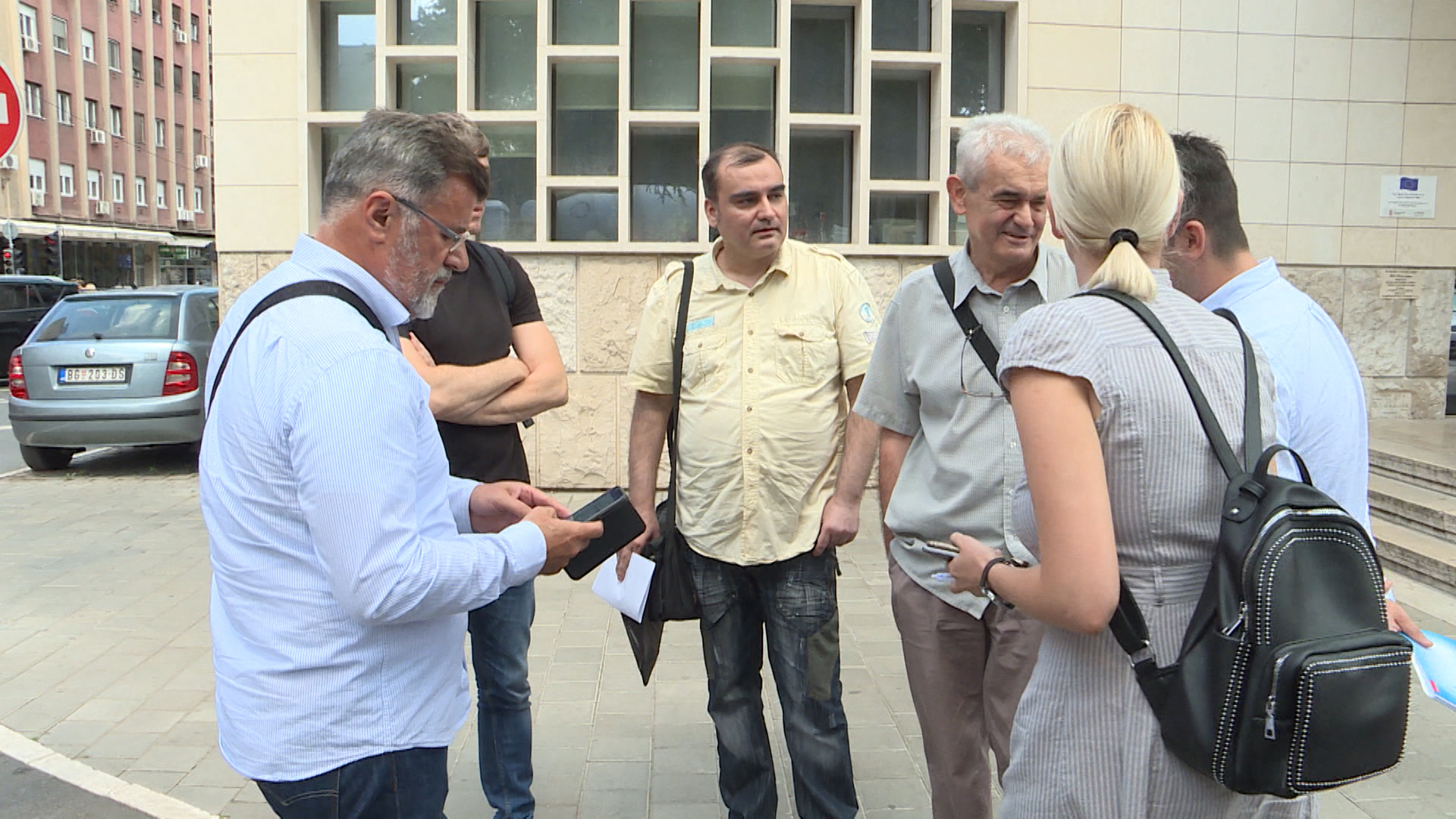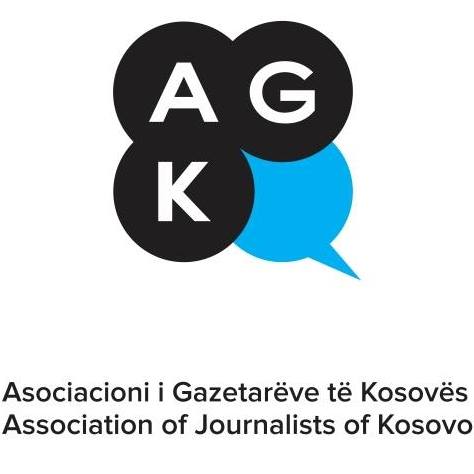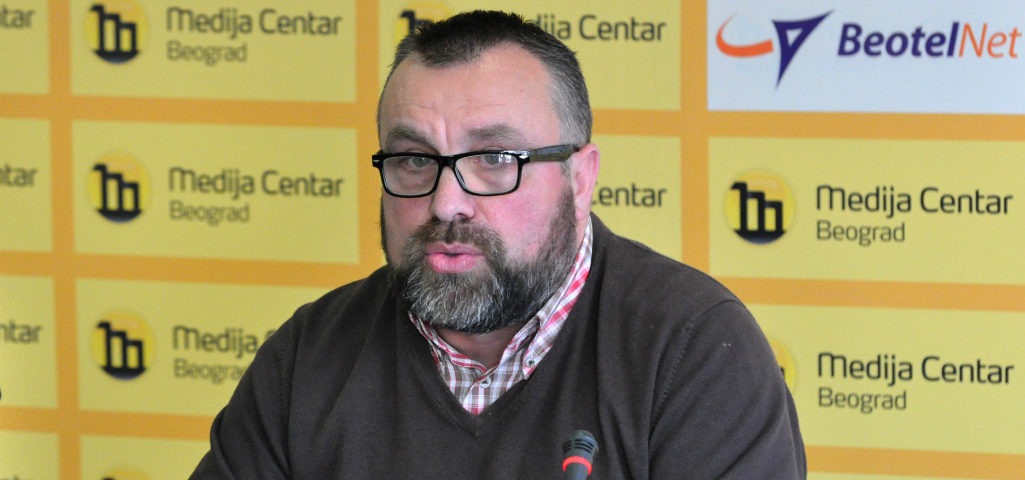SARAJEVO, 25.06.2018.-Legal regulations of media field in Bosnia and Herzegovina has, according to most analysis that had been conducted, been considered as a set of quality – based legal regulations, although in certain segments insufficient quality has been noticed as far as its implementation is concerned.
What most surveyors, analysts, and researchers agreed on (Brunwasser, Marko, Turčilo (2016), Šljivo (2016) etc.) was the fact that legal regulations still lack certain laws, such as Law on Ownership Transparency and Law on Advertising Industry. The passing of both these Laws can be based upon the theoretical thesis, European practice, but also based upon current situation in the media field in BiH. In this text, we shall take into consideration the reasons consisting of the requirements necessary for passing the Law on Ownership Transparency and making its passing justified.
Generally, we consider media as social institutions, business sector, and public services as well. It’s these three roles that support the thesis that legal regulation of media ownership represents the tool for strengthening and reinforcing the media scene but also represents a better quality interaction between the public and media branch. Namely, media houses, being marked as social institutions, are obliged to conduct, execute and provide fair, objective, unbiased and well – balanced information to general public looking from different sources, angles, and perspectives. In order to obtain a pluralism of different opinions, including ideas and information provided, the existence of media pluralism is (in democratic – based societies) required, including communication channels. This can be attained by preventing horizontal and vertical ownership concentration, that is, prevention the monopoly occurrence, with an aim to provide various platforms for social dialogues required.
When in fact, we analyze media houses as business spheres, it becomes clear why we failed here long ago (in theoretical discourse, but also in reality) in order to approach media as value-based neutral and technically and technologically established and developed means for information and ideas passing and transferring; instead we approached media houses as we would approach certain organizations with pre-established structure and functioning on common sense basis, including outcomes of operations and agendas and at the end, whose final goal would be to make a profit. All influencing factors making an impact upon media institutions, including media operations and questions being outlined on the agenda, must continually be questioned, assessed and finally, explained to the general public. Having highlighted this, it would be crucial to provide, even including ordinary citizens, with the information regarding media owners, bearing in mind that this would enable them to evaluate the background of information provided and intermediated through certain media house.
It is neither sufficient, nor encouraging to allow media houses to operate according to market regulations only, in sense of neoliberal capitalism and profit common sense, particularly due to the fact that the number of media houses in BiH, media market that manage to operate without solid and stable market logic, with obvious, limited and decreased commercial advertising potential and limited published editions or limited viewership, which altogether creates a suspicion that the money for these media houses have been “injected”’ from other financial sources. Finally, if, generally speaking, media houses are considered a public service, than it is crucial for citizens not to act (serve) as govern- ment’s puppets, including elite groups’ puppets, promoting thus governing officials’ interests and the interpretation of social reality thus becomes consequently “tailored” pursuant to its requirements and needs and this may be caused by close ties between media entrepreneurs (owners) and political and economic authorities.
At the end, less but not the least reason for insisting on ownership transparency can be displayed through the fact that editing policies are indeed directly linked and tied with owners’ interests, and it would therefore be necessary and required to follow European standards and provide information regarding who owns what (media owners information), why they decide to purchase certain media house and are they eager and willing to alter editing policies after purchasing this media houses, altogether to the benefit of both citizens (public) and media staff (employees) in media. Ownership transparency is also, directly tied with the prevention of political clien- telism where upholding and advocating reporting alters objective information and journalism as such,and thus loses its independent and emancipation – based social role.
Media houses have been subject to instrumental and clientelism – based societ- ies (and Bosnia and Herzegovina is certainly one of these societies) and as a result, public is not provided with quality – ranged information, nor they are presented with an opportunity to take part in public discourse, having in mind that public discourse, as such, is “reserved” for elite groups. Prevention of political clientelism is therefore following an increase of media transparency sphere. As far as legal regulations of media ownership in Bosnia and Herzegovina is con- cerned, they should, above all, resolve the issue and answer the question and pro- vide information accessibility regarding actual cases and share reliable information about media owners, in order to ensure the control media concentration and prevent monopolistic relations towards media houses and their misuse by political and economic powerful groups and individuals. In this context, the initial precondition is actually the establishing of single registry of media houses which should undoubtedly display who the real media owners are. It is the fact that Communication Regulatory Agency and Press Council, as regulatory bodies, in fact as self – regulatory body, do have the list of media houses and this list contains the information regarding media ownership (formally), that is, companies owning certain media houses.
However, the information regarding the real media house owners are in fact difficult to access and this may (in most cases) be done by checking the information on Company Register list with these companies being outlined legally as owners which again represents one of the problems that should be resolved and settled by the normative regulation and the implementation of its provisions. Furthermore, reality and real cases confirmed that it is important to ensure the information transparency regarding the owners and structure of certain web sites, taking into consideration that they are becoming more and more significant information source for general public and these web sites operate as standard media organizations with most web sites having absolutely no information about the owners (entrepreneurs), have no impressum sections that may encourage the editors and other staff to improve their work.
Law on Transparency of Media Ownership should be developed in accordance with European cases and practices, and it should include wide counseling with legal experts and media community representatives as its final outcome should result in more transparent media scene that would enable the comprehension of media operation context for all citizens. It is on one hand and looking at short – term perspective, the mechanism required for media scene support, and on the other hand and looking from long –term perspective and directly, a mechanism for democratization of the entire society in Bosnia and Herzegovina.
This text is a part of E-Bulletin– fifth edition of special serial of BHN online bulletin implemented through the “Media and Public Reputation” (origin. “Mediji i javni ugled”) project, also representing a contribution to public debate regarding the transparency of media ownership and upholding and encouraging the passing of set of laws aimed to advance media field and information market in BiH.


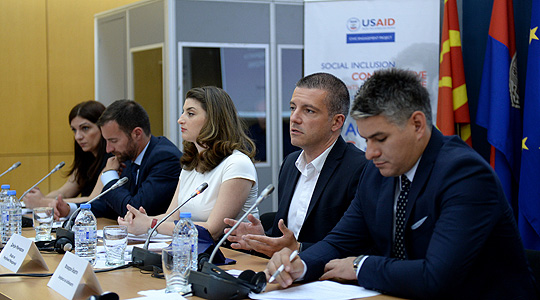
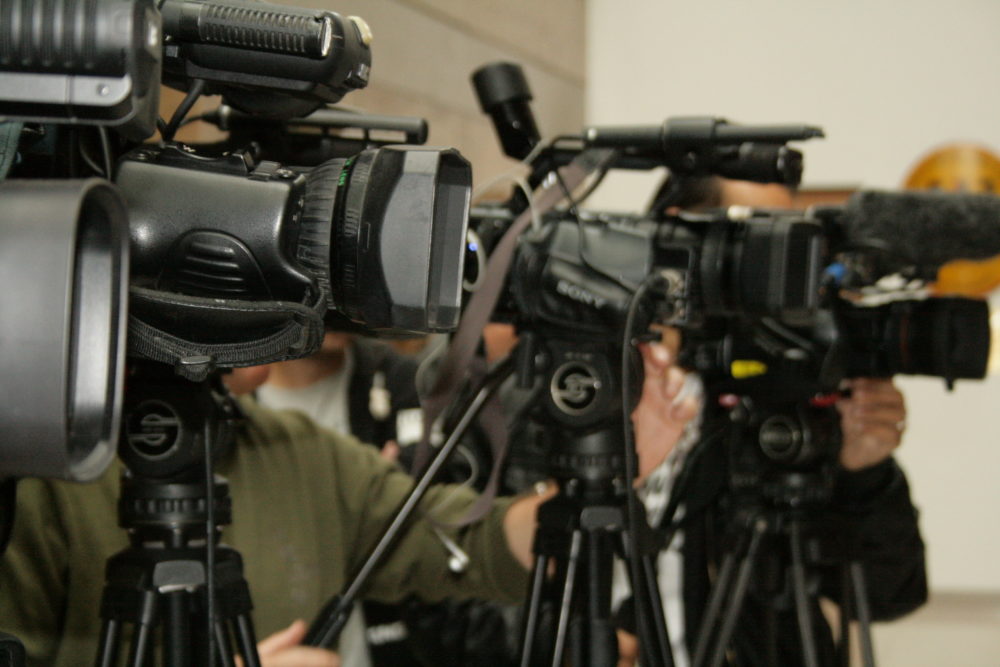
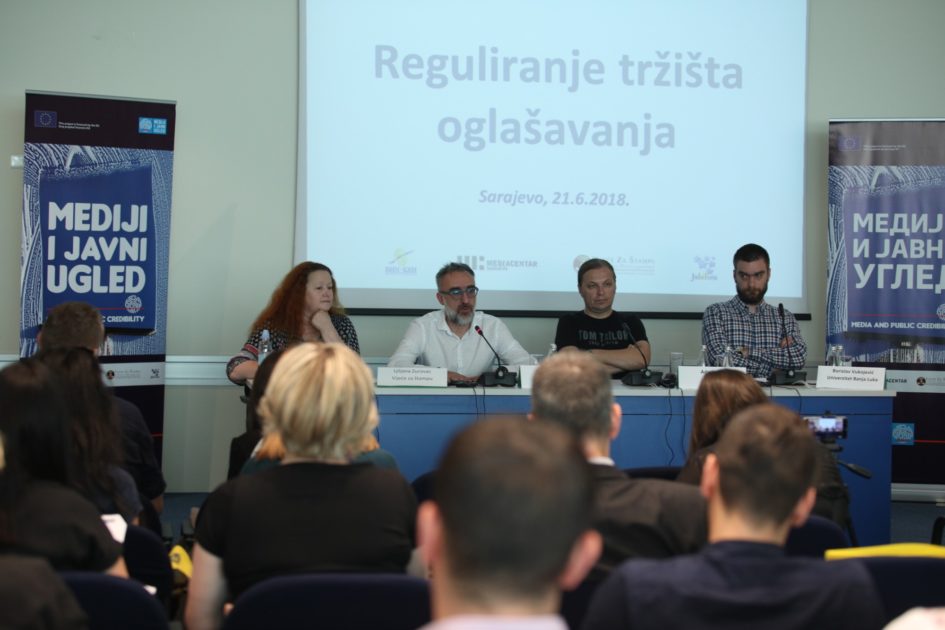
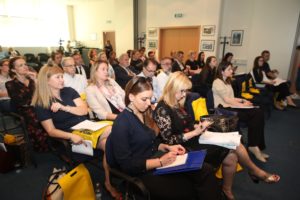 SARAJEVO, 21.06.2018. – On the conference “Regulation of the advertising market” held on June 21, 2018 in Sarajevo, a report on advertising policies and practices in BiH was presented, and problems and possible solutions for the unregulated advertising market in BiH were discussed.
SARAJEVO, 21.06.2018. – On the conference “Regulation of the advertising market” held on June 21, 2018 in Sarajevo, a report on advertising policies and practices in BiH was presented, and problems and possible solutions for the unregulated advertising market in BiH were discussed.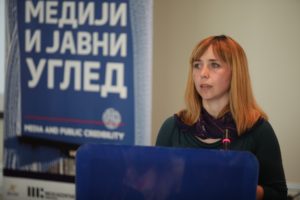 The existing legislation and regulations in BiH include certain aspects of advertising, especially in the electronic media sector, but many areas remain unsettled, such as discounts for advertising services, advertising games of chance and advertising through influencers, said the representor of the report Sanela Hodžić, researcher of Media Centre Sarajevo, who presented the main findings.
The existing legislation and regulations in BiH include certain aspects of advertising, especially in the electronic media sector, but many areas remain unsettled, such as discounts for advertising services, advertising games of chance and advertising through influencers, said the representor of the report Sanela Hodžić, researcher of Media Centre Sarajevo, who presented the main findings.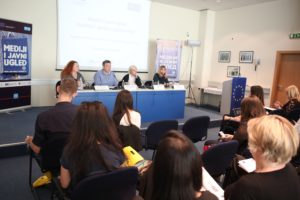
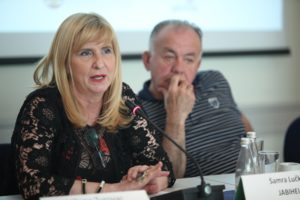 Marceting expert Ekrem Dupanović stressed that it is primarily necessary to unite the media industry, which has so far shown disinterestedness to address these issues.
Marceting expert Ekrem Dupanović stressed that it is primarily necessary to unite the media industry, which has so far shown disinterestedness to address these issues.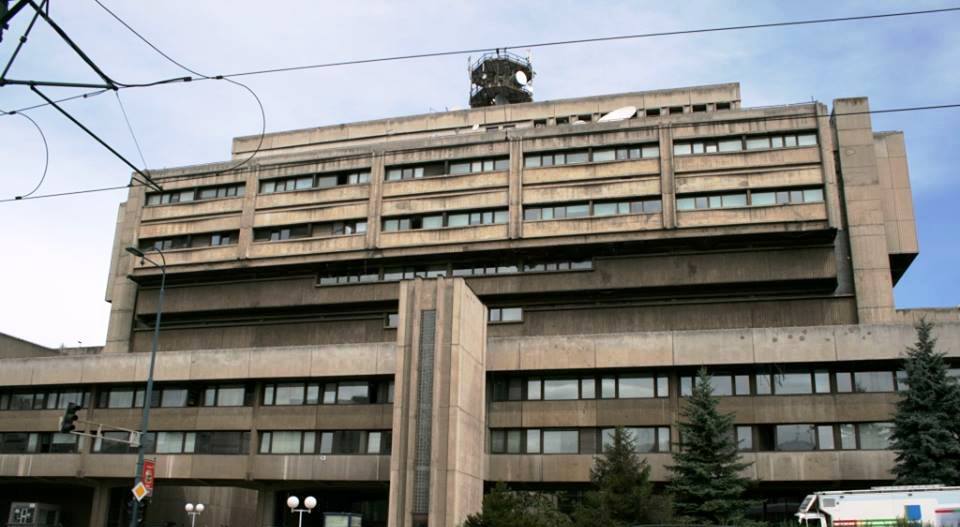
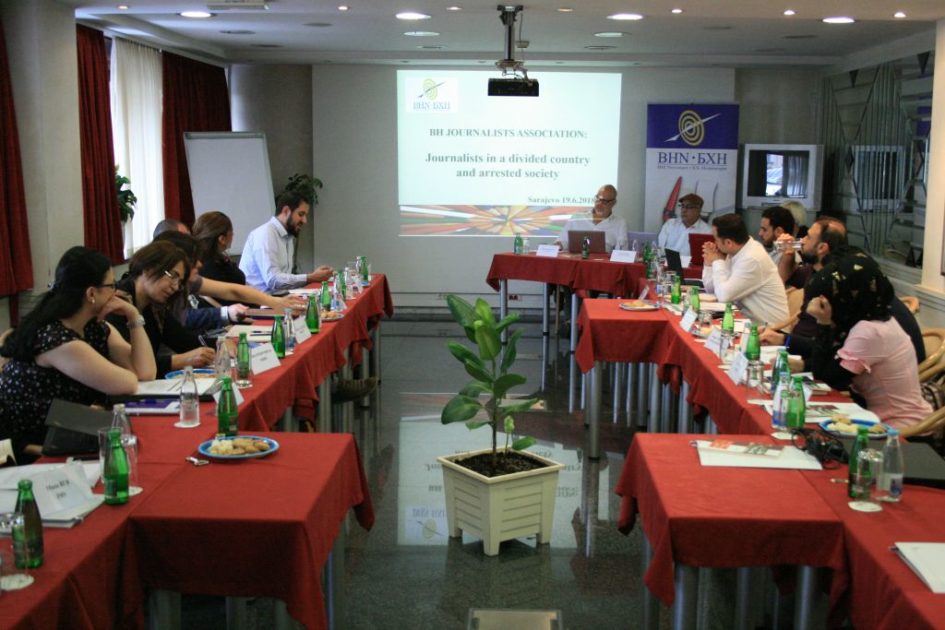
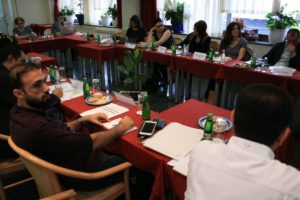 SARAJEVO, 22.06.2018. – Media and civil society organizations play an important role in post-conflict processes of building peace and tolerant societies. As it was said on the workshop “Transitional Justice and Reporting” which started today in Sarajevo, in circumstances like this, journalists must be more accountable and professional, because the media content they produce has an impact on the culture and behavior of citizens.
SARAJEVO, 22.06.2018. – Media and civil society organizations play an important role in post-conflict processes of building peace and tolerant societies. As it was said on the workshop “Transitional Justice and Reporting” which started today in Sarajevo, in circumstances like this, journalists must be more accountable and professional, because the media content they produce has an impact on the culture and behavior of citizens.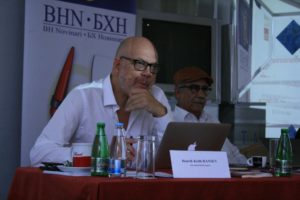 „Media outlets and civil society organizations must be more responsible and creative in their work in war and post-war social circumstances. Journalists and activists must be aware that media and civil society organizations significantly influence the perception of reality, culture and citizens’ behavior“, said the media adviser of IMS Henrik Keith Hansen and emphasized that in specific conflict circumcises society needs journalists who would report on an innovate way, with the focus on solutions and who are able to make a step forward from conventional reporting.
„Media outlets and civil society organizations must be more responsible and creative in their work in war and post-war social circumstances. Journalists and activists must be aware that media and civil society organizations significantly influence the perception of reality, culture and citizens’ behavior“, said the media adviser of IMS Henrik Keith Hansen and emphasized that in specific conflict circumcises society needs journalists who would report on an innovate way, with the focus on solutions and who are able to make a step forward from conventional reporting.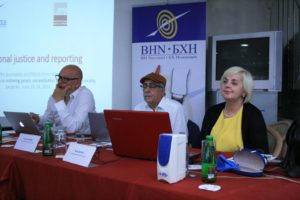 „Considering that Bosnia and Herzegovina journalists have experienced both war and transitional journalism in recent history, I believe that the workshop in Sarajevo will help and contribute to peacebuilding and the construction of a media scene in Iraq and Syria“, said the program director of IMS Osama Hababe and expressed the strong support of this organization in constructive reporting that simultaneously understands and empowers citizens.
„Considering that Bosnia and Herzegovina journalists have experienced both war and transitional journalism in recent history, I believe that the workshop in Sarajevo will help and contribute to peacebuilding and the construction of a media scene in Iraq and Syria“, said the program director of IMS Osama Hababe and expressed the strong support of this organization in constructive reporting that simultaneously understands and empowers citizens.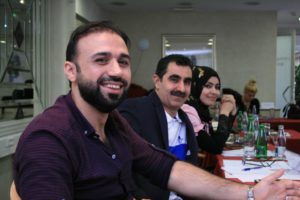 During this six days participants will learn and discuss, among other things, about standards of fair, balanced and objective reporting on sensitive issues related to war and human rights violations, transitional justice and facing the past, documenting war crimes and media contribution to peace building and stabilities.
During this six days participants will learn and discuss, among other things, about standards of fair, balanced and objective reporting on sensitive issues related to war and human rights violations, transitional justice and facing the past, documenting war crimes and media contribution to peace building and stabilities.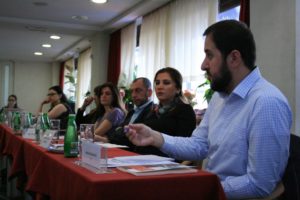 Media professionals, representatives of the academic community, transitional justice experts and activists from BiH will share their experiences with the participants. In addition to this, visits to the editorial offices of Oslobodjenje and Federal Television, and the BHJA journalists club in Mostar are planned.
Media professionals, representatives of the academic community, transitional justice experts and activists from BiH will share their experiences with the participants. In addition to this, visits to the editorial offices of Oslobodjenje and Federal Television, and the BHJA journalists club in Mostar are planned.